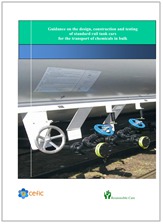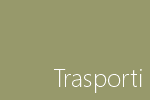
Guidance design construction testing rail tank cars transport chemicals bulk
This document provides guidance on the design and construction of Rail Tank Cars (RTC’s) and associated equipment commonly used for the transport in bulk of chemicals.
This document does NOT address the transport of solids or of products with specific requirements e.g. ethylene oxide, ammonia, etc.
The design and construction of RTC’s must, as a minimum, be in compliance with the international regulations concerning the Carriage of Dangerous Goods by Rail (RID).
Transportable Pressure Equipment and other domestic regulations where applicable.
This guidance contains recommendations on top of what is already legally required.
The document is split into 2 columns:
A. Liquids (with a focus on chemicals i.e. non-oil products)
B. Gases (limited to liquefied flammable gases e.g. LPG, propane, butane, butadiene, propylene, etc. but excluding gases that have specific requirements such as ethylene oxide, chlorine, etc.)
Text that is common to both liquids and gases has been highlighted in blue.
This guidance contains recommendations on top of what is already legally required. It replaces the previous version of the Cefic Guidelines issued in 2003.
This document replaces the previous version of the Cefic Guidelines issued in 2003
CEFIC
Rev. 1 August 2013
Rev. 2 Luly 2016



















